"Handmade" quality
Our grapes are harvested and selected exclusively by hand.
Discover our craft
Location and terrain
You can find the Domaine de Saint-Eugène, our 250 year old mansion, at the foot of the Roman settlement of Oppidum d’Ensérune, between the Canal du Midi and the Mediterranean Sea along the very first road between Rome and Spain: the Via Domitia. It is in our modern cellar that the vinification of this special product of our terrain takes place.
The different vineyards with a total surface of 15 hectares are mainly situated on slight slopes, the so-called côteaux. Some of them are situated in the Appellation Côteaux du Languedoc while others are hidden in the middle of the typical garrigue and pine forests, with the characteristic aromas of pine, thyme, rosemary, lavender and many other irreplaceable Mediterranean scents that give balance and elegance to our wines.
The soil, rich in chalk and clay, is incredibly varied and contributes to the ripening of noble grape varieties such as Syrah, Cabarnet-Sauvignon, Merlot and Grenache.
Special attention is paid to the soil, the wind, the pruning in short cordon the royat and the environmentally-friendly cultivation, in order to control the entire process from the early beginning of pruning up to the manual grape harvest.
The regionVINTAGES
Our methods are different from our colleagues. We choose to not mention any vintages on our bottles because the older and mature our vines become, the more we hope for an even better quality each year.
We erase the differences that stem from the climate through an even stricter selection on the vine itself. You can therefore assume that each year has at least the same quality level as the previous year.
Cépages

Cabernet Sauvignon
This is the classic of all red vine varieties and is found all over the world. The vine delivers aromas of blackcurrant, green peppers, mint and cedar wood.

Syrah
Syrah grapes are dense, rich and almost black in colour. The vine is identified by a pepper fragrance and a taste of dark chocolate and plums. In the Languedoc, Syrah enriches the wines from the traditional vine varieties and improves their quality. This variety is also increasingly cultivated for monocépage wines.

Grenache
Grenache is the most cultivated vine variety in Spain and counts among the ten most widespread varieties in the world. Grenache offers mostly bright, sweet, often expressively spicy and tannin-poor wines.

Sauvignon Blanc
This is a common white grape variety. In monocépage it gives a fresh wine with aromas of blackberries and red berries, often with green touches (freshly mown grass), minerality and acidity.

Merlot
Merlot is always soft, opulent, full of fruity sweetness and with a high alcohol content. The vine delivers aromas of black cherries, plums and blackcurrants.
GRAPE HARVEST & VINIFICATION
Before the actual harvest, we have already walked through the vineyards several times: young redundant buds and slow-ripening grapes have been removed and the foliage is thinned out on the side of the sunrise. The final goal of these techniques is to have less production but a better concentration of minerals in the remaining grapes. A strict inspection is performed at the time of ripening.
The temperature is constantly monitored and the grapes are pumped and crushed three times a day. The decanting of the grape pulp inside the barrels occurs naturally through gravity. The wine ripens in oak Allier and Limousin barrels and after a mild filtration the wine is bottled on the domain itself.
HANDMADE
We only choose the best plots in order to be able to harvest manually. This allows for a first selection of grapes on the vines themselves. These grapes are then harvested in small crates to preserve the quality of the fruit without crushing it.
As soon as they arrive in the wine cellar, the bunches of grapes are placed on a sorting table. Here, a second manual selection of the grapes is done before they are destemmed and transferred into a barrel without using any mechanical pumping. Each grape variety and each vineyard is processed separately according to the ripeness of the grape.
ORGANIC
Our wines are produced exclusively according to Ecocert specifications and do not contain any pesticides, fungicides or herbicides. Nevertheless, we reject the Bio label as our wine is made only of grapes. According to us, any winemaker who adds something different than grapes to his wine should mention that on the label. We know that we are the “odd one out” in the wine sector, but we are convinced we need to set a good example.
Technical information
- Region: Languedoc
- Appellation: Vin de France
- Grape varieties: Syrah, Grenache, Merlot, Cabernet Sauvignon
- Surface area: 15 ha
- Plantation: 2,50 m x 0,80 m
- 3000 – 4000 vines/ha
- Policy: double cordon de Royat with 3 different wire heights
- Yield: 25 à 35 hl/ha = 4.000 bottles/ha
- Average age of vineyards: 15-35 years and more (over 100 years old)
- Vineyard master: Paul Vercammen
- Enologist: Michael Naab
glass bottle cap
Don’t allow a bottle cap to spoil the scent and taste of your wine. A glass bottle cap does not influence the wine’s taste in any way and it gives the wine a chance to develop more slowly due to a lower oxygen transfer. This type of bottle cap allows you to open and close a bottle with one simple gesture and to keep it perfectly waterproof. For these reasons, we have decided to only use this closing method in the future.






